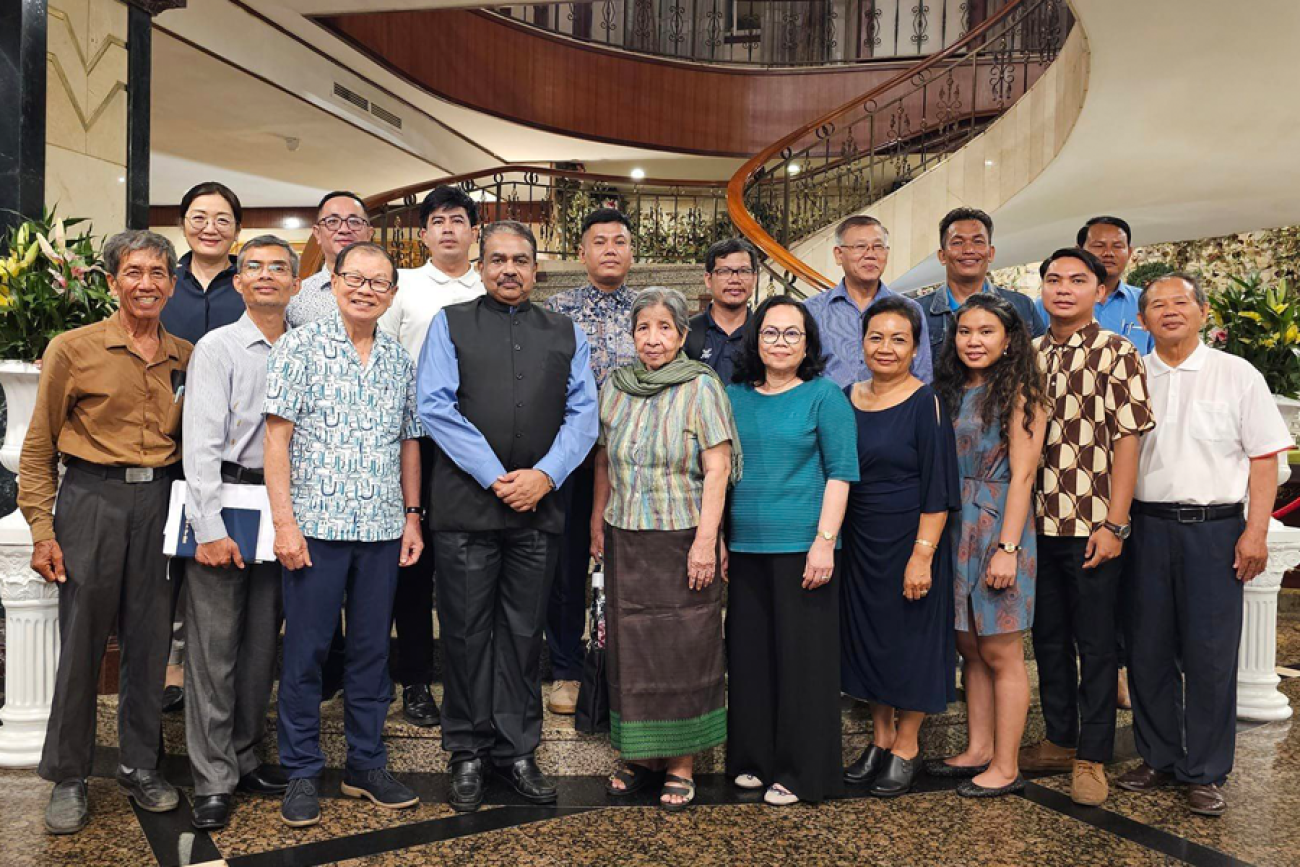Cambodian church leaders affirm commitment to strengthen ecclesial and ecumenical unity

Phnom Penh, Cambodia: Christian witness in Cambodia faces severe crisis today due to multiple factors affecting the Cambodian churches and related organizations. This was the concern expressed by a group of church and ecumenical leaders during their meeting with a pastoral solidarity team from the Christian Conference of Asia (CCA) visited Cambodia from 16 to 19 May 2024.
The representative group of Cambodian Church and ecumenical leaders, who belong to different generations of the post Khmer Rouge era Cambodian Christianity, told the CCA team about the current situation of the church and ecumenical organisations in the country.
The church leaders, who gathered for a meeting after a long gap, affirmed their commitment to strengthening common witness in unity and evolved a plan of action to strengthen the defunct ecclesial and ecumenical organizational structures at the local, provincial, and national levels in the country. A fifteen member ad hoc working committee was formed to undertake the task of promoting unity and of strengthening the organizational structures, including at the provincial levels.
Leadership conflicts, increased communication gap among the leaders, lack of transparency and accountability in resource management in churches and organisations and competition for leadership positions were pointed out as the reasons for polarization within the small Christian community in the country.
Aggressive styles of evangelization tactics promoted by certain overseas missionary groups working under the labels of denominations and confessional organizations in different parts of Cambodia intensify conflicts and fragmentation among the local Cambodian Christians, the church leaders explained.
Christianity in Cambodia has emerged from the dark period of Khmer Rouge tyranny., and present-day Cambodian Christianity traces its history back to the period when the country was opened after the Paris Peace Agreements (Comprehensive Cambodian Peace Agreements) were signed towards the end of 1991.
The church leaders who met with the CCA delegation included some of the first Christian leaders who returned to the war-torn Cambodia from the refugee camps, and who took initiatives in organizing Christian fellowship groups for first time in the country after the Pol Pot era.
The church leaders who have been in the leadership of the defunct Kampuchea Christian Council (KCC), the member council of CCA in Cambodia shared their anguish and disappointments regarding the disunity precipitated among KCC members due to a small piece of landed property acquired by CCA for the use of Cambodian churches in the 1990s.
The Kampuchea Christian Council, the first national ecumenical body formed in Cambodia after five years of intensive work of the Christian Conference of Asia and the World Council of Churches from 1993 to 1998, was officially inaugurated in 1998. The property was originally registered in the name of a former officer of the KCC, due to legal impediments in registering immovable property in the name of religious organizations; but the ownership of the land still remains with a former office bearer of the KCC.
The KCC was the first Christian organization registered under the Ministry of Religious Affairs and Cult of the government in the Royal Kingdom of Cambodia.
The Pastoral Solidarity Team Visit was headed by CCA General Secretary Dr Mathews George Chunakara, along with Prof. Dr. Pradit Takerngrangsarit, member of the CCA executive committee, Rev. Jung Eun Moon, and Dr Ronald Lalthanmawia, CCA programme coordinators.
The solidarity visit was organized as part of CCA’s accompaniment with member churches and councils in Cambodia who are going through difficult situations especially in areas of developing integrity leadership, mutual accountability, and good governance in managing church and ecumenical bodies.










